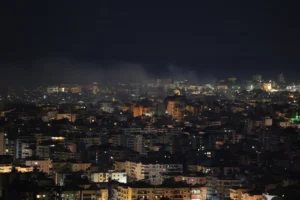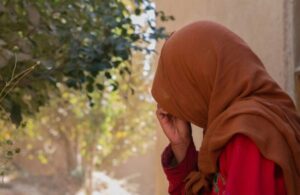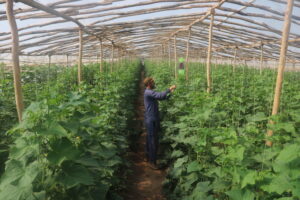KABUL (SW) – As the young and only breadwinner for an extended family, Lateef thought by migrating from Afghanistan to the UAE his troubles would end.
Lateef, a 30-year-old resident of Kabul, is the father of a son and a daughter and is tailor by profession. He is also the eldest child in his family and has long been trying to provide for his extended family of 13 people.
Due to his large family size and low income, he hoped to migrate regularly to the UAE with high hopes. The day Lateef decided to leave Afghanistan, he sold his shop and headed to the UAE by spending up to $ 720.
“My job is sewing cloths,” Latif said in an interview with Salam Watandar. “The business here was not good and it was barely enough to cover the expenses of the house and the shop. There were security problems, and then there was no work, so I wanted to go abroad. I traveled legally, I consulted with my family, because when the prayers of your parents are not behind you, it does not work. I paid the money, got a passport and the visa, and went to the UAE.”
While narrating the tale of his migration, Lateef said he could only work in the UAE for 20 days, and the spread of the corona virus led to closures of businesses as quarantine measures were implemented.
Lateef said he was faced with many problems because he was a stranger and did not understand the language either. And, on top of that, the news of the death of his father further hurt his feelings.
“The coronavirus has hurt all countries, especially those who have migrants,” Lateef added. “There were many problems, we could not cover the rent of the room we were living in. After the quarantine was over, I was looking for a job, I went from store to store for a month to find a job, and eventually I found a job. I was very happy. Less than a month later, the news of my father’s death came and I had to come back to Afghanistan.”
War, poverty, insecurity and unemployment have not only forced Lateef to emigrate, but for years these factors have led many young Afghan to migrate through regular and irregular means.
Meanwhile, Sayyed Abdul Basit Ansari, media adviser to the Ministry of Refugees and Returnees, said in this regard the ministry has been working with the Ministry of Labor and Social Affairs to send skilled workers abroad and is planning to send 20,000 people to work in Arab countries.
“For those who arbitrarily want to go to Arab countries and want to work there, of course, each country has its own law,” he said, adding it remained very difficult for individuals to find work for themselves.
“In our own country, we also saw the quarantine measures causing troubles to daily wagers and others, this is a serious problem. And, unfortunately, in the country that you mentioned, we do not have a representative. Our compatriots in countries where the Ministry of Refugees and Repatriation is not represented can go to the Afghan embassy to solve their problems”, he said.
On the other hand, Abdul Fattah Ishrat Ahmadzai, spokesman for the Ministry of Labor and Social Affairs, said that the ministry has been working on measures to curb the problem of unemployment, and one way for this is to send skilled workers abroad.
“When we started the program, it was clear that there has to be a memorandum of understanding between government departments. Insha’Allah, these memorandum of understandings will be signed, and we are working on the process of sending skilled workers abroad. Fortunately, we have started it, the UAE is the first country that has signed an official memorandum with us on this matter”, he said.
Spokesman for the Ministry of Labor and Social Affairs hoped the process of sending skilled workers abroad would help prevent irregular migration
ENDS






